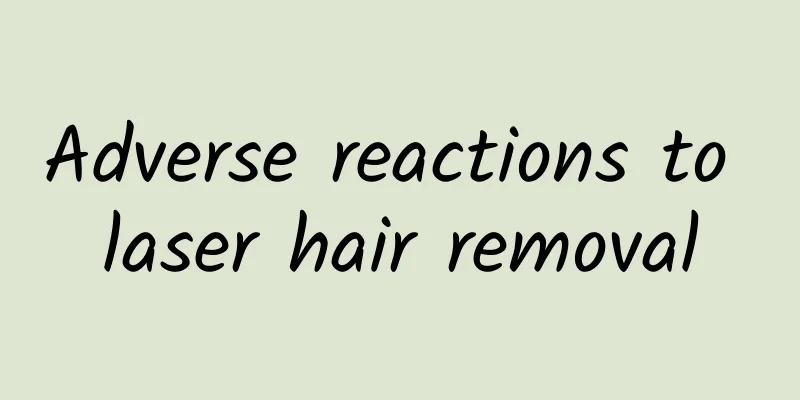Why does the elderly have hallucinations after surgery?

|
If an elderly person experiences hallucinations after surgery, children must pay attention and consult a doctor in time, because this situation may be related to damage to the nervous system. This often leads to memory loss, disorientation, and other conditions in the elderly. For example, personality, social skills, and cognitive abilities may change to a certain extent, and sometimes this situation is quite serious. Why does the elderly have hallucinations after surgery? Postoperative neurological damage includes neurosis, memory, abstract thinking, disorientation and decreased social activity ability (i.e. changes in personality, social ability and cognitive ability, the latter including short-term memory impairment, and in severe cases dementia, personality changes, loss of social activity, reactive mental disorders (which may manifest as confusion, stupor, fugue-like reactions), fever, convulsions, etc. Postoperative psychiatric symptoms may appear immediately or within hours. Mild cases can be recovered in a short time; severe cases are life-threatening. Prevention and treatment 1. Improve preoperative preparation: ① Psychological preparation: Pay attention to the patient's personality characteristics before surgery, and patiently and carefully provide psychological counseling and supportive psychotherapy for the patient; strive for the success of the operation, increase the patient's trust in medical staff and sense of security during the operation are the main measures to prevent and reduce central nervous system complications. ② Preparation of patient condition: For patients with existing cardiovascular diseases, heart function should be maintained at the best state; control blood sugar, stop smoking and control lung infection. 2. Strengthen intraoperative anesthesia management: such as ① maintaining stable breathing and circulation: avoiding hypoxia, extreme hyperventilation and prolonged hypotension. ②Maintain the homeostasis of the body's internal environment: maintain the balance of water, electricity, acid and alkali in the body. ③ Strengthen monitoring, try to avoid awareness during surgery, pay attention to the monitoring of regional brain oxygen saturation (rSO2) and anesthesia depth, pay attention to sleep disorders before and after surgery, and avoid the occurrence of post-traumatic stress syndrome as much as possible. 3. Improve surgical anesthesia techniques: ① Maintain necessary cerebral blood perfusion, try to avoid cerebral ischemia, hypoxia and embolism, and use a well-functioning oxygenator and microembolic filter. ② Maintain reasonable blood pressure and cerebral blood flow: For patients who need brain protection after surgery, mild hypothermia should be selected, and the cooling time window should be properly controlled; dynamic monitoring and maintenance of water, electrolyte, acid and alkali balance should be performed; and adequate sedation and analgesia should be given. 4. Drug intervention and treatment ① Prevention: For patients who are extremely anxious and nervous before surgery and whose sleep is affected, sedatives or anti-anxiety drugs should be used as appropriate according to the patient's condition to relieve the patient's negative emotions; improve analgesia and strengthen sedation during surgery; pay attention to sedation and analgesia after surgery. ②Treatment: For excited and agitated patients, a small amount of butyrophenone drugs can be used, such as haloperidol 2-6 mg/d, or start with a small dose and take the medicine regularly in a short period of time. If anxiety persists, benzodiazepines such as diazepam 2.5-5 mg, 2-3 times/d, and alprazosin 0.4-0.8 mg/time, 3 times a day can be used until the symptoms subside. Tricyclic antidepressants have a good effect on relieving depressive symptoms. Commonly used drugs include imipramine 50-100 mg/d and amitriptyline 50-100 mg/d. |
<<: Why do girls clench their fists when they sleep?
>>: Is it okay to not sleep for a day occasionally?
Recommend
Chinese medicine treatment for age spots
The appearance of age spots has brought serious h...
What is the treatment for mouth ulcers?
Oral ulcers are an oral disease that often troubl...
What causes bloating, hiccups and chest tightness?
Stomach bloating is very uncomfortable. In additi...
Medicinal value of turtle shell
Other names for turtle shell: turtle shell, upper...
Chinese herbal medicine repairs glomerular function
In life, don't forget that some diseases can ...
What to eat when you have stomach pain
Many people suffer from stomach pain, especially ...
What's wrong with the baby's yellow stool?
Under normal circumstances, the baby's stool ...
How many varieties of ginseng are there?
There are many varieties of ginseng, and differen...
Symptoms of typhoid fever
Typhoid fever is also a common type of cold, whic...
What are the effects of Alisma?
Traditional Chinese medicine has many uses. It ca...
Localized neurodermatitis
Localized neurodermatitis is also a relatively co...
What are the traditional Chinese medicines for treating freckles?
Because once many people's skin develops spot...
Diarrhea like water
Diarrhea is a common disease. Some people do not ...
What causes numbness in hands and feet?
Nowadays, the pressure of life is getting higher ...
Black mole suddenly appeared on the back
Most moles are dark in color, which is a very nor...









